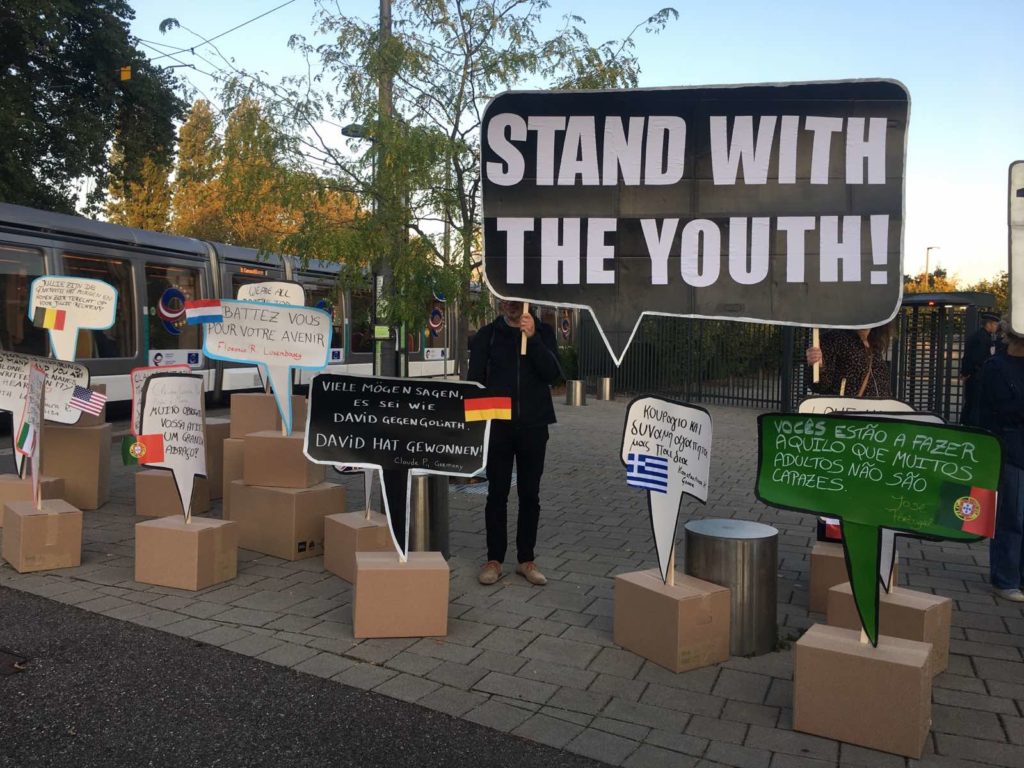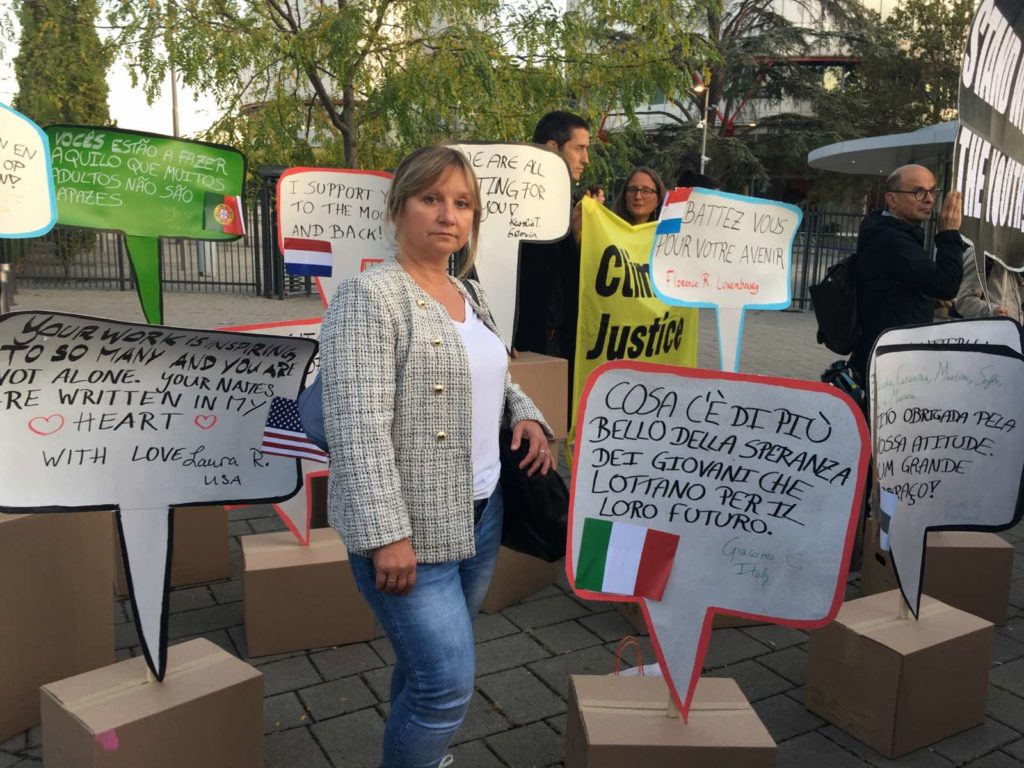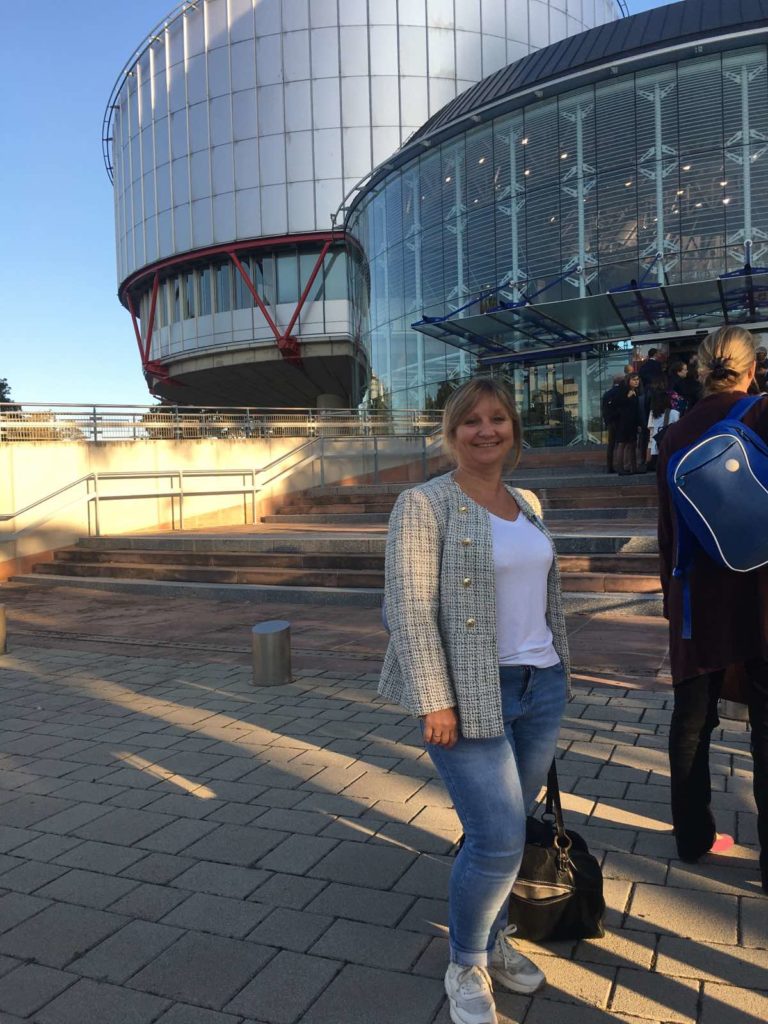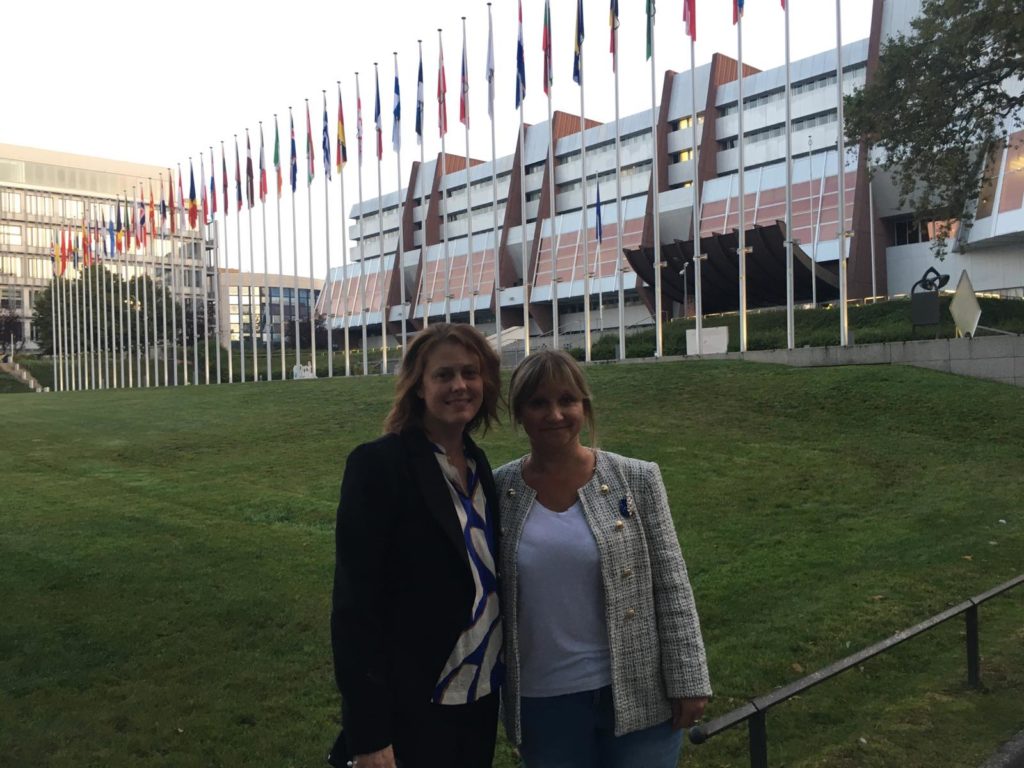A week ago, a meeting of human rights defenders and eco-activists from various European countries took place in Strasbourg. There was a discussion of the ways of advocating for the earliest possible adoption of the draft protocol to the European Convention on Human Rights on enshrining the right to a safe, clean, healthy and sustainable environment.
The meeting lasted for several days and resulted in a developed advocacy strategy and a number of information campaigns. EPL representatives also took part in the development of the strategy.
At the end of September 2021, the Parliamentary Assembly of the Council of Europe, referring to its Resolution 2396 (2021) “Anchoring the right to a healthy environment: need for enhanced action by the Council of Europe“, reiterated the need to recognize a new generation of human rights.
At its Recommendations 2211 (2021), the Assembly expressed extreme concern at the rate and extent of environmental degradation, biodiversity loss and the climate crisis, which directly affects people’s health, dignity and lives. The Assembly stated that it was time for the Council of Europe to show ambition and a strategic vision for the future by facing this major challenge to human rights and ensuring their enhanced protection in an era of systemic environmental threats to present and future generations.
In this regard, the Assembly recommended that the Committee of Ministers develop an additional protocol to the European Convention on Human Rights on the right to a safe, clean, healthy and sustainable environment and proposed the text of such a protocol.
As noted in Recommendations 2211 (2021), the inclusion of this right in the Convention will establish a clear responsibility of member states, including Ukraine, in the field of maintaining a proper state of the environment, compatible with a dignified life and good health and full enjoyment of other fundamental rights; it will also contribute to much more effective protection of a safe, clean, healthy and sustainable environment at the national level, including for future generations. The unofficial translation of the main positions of the additional protocol to the European Convention on Human Rights, which concerns the right to a safe, clean, healthy and sustainable environment, can be found here.
On one of the working days of members of the Working Group on advocating adoption of the Additional Protocol to the European Convention on Human Rights concerning the right to a safe, clean, healthy and sustainable environment, a meeting of the European Court of Human Rights was held to consider the case Duarte Agostinho and Others v. Portugal and Others (no. 39371/20).
Description of the consideration of the ECtHR climate case Duarte Agostinho and Others v. Portugal and Others
On one of the working days of members of the Working Group on advocating adoption of the Additional Protocol to the European Convention on Human Rights concerning the right to a safe, clean, healthy and sustainable environment, a meeting of the European Court of Human Rights was held to consider the case Duarte Agostinho and Others v. Portugal and Others (no. 39371/20).
The European Court of Human Rights (hereinafter the ECtHR) held a hearing in the Grand Chamber on Wednesday, September 27, 2023 on the historic climate case Duarte Agostinho and Others v. Portugal and Others (no. 39371/20). This case concerns emissions of greenhouse gases in 33 states, which, according to the applicants, cause an increase in the level of global warming, which leads, among other things, to abnormally hot periods affecting the living conditions and health of the applicants. This document provides a brief description of the procedural issues and issues raised in this case.
PROCEDURE
The application was submitted to the European Court of Human Rights on September 7, 2020.
On November 13, 2020, the governments concerned were notified of the application and received questions from the ECtHR. The ECtHR Chamber decided to consider this case as a matter of priority, in accordance with Rule 41 of the Registry of the ECHR.
On 28 June 2022, the Chamber to which the case had been allocated waived jurisdiction in the case in favor of the Grand Chamber.
THE CASE
The applicants allege that Portugal and 32 other states are infringing the European Convention on Human Rights (hereinafter referred to as the ECHR or the Convention), without taking sufficient measures to help limit the increase in the average global temperature to 2°C and possibly even to 1.5°C, as defined in the Paris Agreement of 2015. They claim that the defendants violate Articles 2 and 8 of the ECHR (right to life and right to privacy), Article 14 of the ECHR (protection against discrimination).
The ECtHR must first decide whether the applicants have a procedural right to apply to the ECtHR without exhausting local remedies before applying to the ECtHR. The second issue before the ECtHR is whether the defendants are in breach of their convention obligations under Articles 2, 8 and 14 of the ECHR. When notifying the defendants of the complaint, the Court, on its own initiative, included Article 3 of the ECHR as such, which may also be violated in this case. This position was recognized as a novel approach, as this article is not usually applied in cases related to climate change. In view of the consequences of global warming for the applicants and other citizens of their age, the ECtHR considers that there may be a violation of Article 3 regarding forms of ill-treatment.
CONTEXT
Applicants are Portuguese citizens aged between 11 and 24.
The plaintiffs claim that the forest fires that have occurred in Portugal every year since 2017 are a direct result of global warming. They claim that there is a risk to their health from these fires, and they have already experienced sleep disturbances, allergic reactions and breathing problems that are worsened by the heat. Some applicants emphasize that climate change is causing very strong storms in winter and claim that their house, which is located by the sea in Lisbon, could be at risk of damage due to these storms.
The applicants state that they feel anxious because of these natural disasters and because of the possibility of spending their whole lives in an increasingly warm environment, which affects them and the families they may create in future.
They claim that the provisions of the Convention indicated by them should be applied in the light of Article 3 (1) of the UN Convention on the Rights of the Child. They also refer to the principle of intergenerational equity, mentioned in numerous international documents, including The Rio Declaration of 1992, Preamble to the Paris Agreement and the 1992 UN Framework Convention on Climate Change.
On September 27, 2023, at the European Court of Human Rights in Strasbourg, there were present representatives of 27 EU member states, Norway, Turkey, Great Britain and Switzerland.
Russia is also named as a defendant in the case, but its representatives were not present at the hearing.
This court case is described by experts as a “David and Goliath case” and is the first time that so many countries have to defend themselves before a court at the international level. The case was named Duarte Agostino after the three brothers who are among the applicants in the case.
ARGUMENTS OF THE PARTIES
Arguments of the applicants:
The applicants claim that they have victim status because they have been directly affected by climate change, mainly through forest fires and the increased frequency of severe storms, which Portugal has felt particularly intensely due to its location.
According to the applicants, the defendants are violating the provisions of the Convention because they do not take appropriate legislative or administrative measures to limit greenhouse gas emissions and keep the temperature rise below 1.5°C. They argue that the defendants do not do this by allowing emissions, by allowing the export of coal fuel, by allowing the import of goods that are produced by colossal emissions into the atmosphere. As stated in 2018 International Panel on Climate Change Report, a temperature rise of more than 1.5°C will have negative consequences for human health and increase the risk of heatwaves in Portugal.
They claim violations of the following articles:
Article 2 of the ECHR, which requires states to create legislative and administrative frameworks to ensure effective prevention of threats to the right to life.
Article 8 of the ECHR, which requires reasonable and sufficient measures to protect the right to privacy, home and a healthy environment. The applicants claim that, given the consequences of climate change for them, the measures that have been taken by the respondents up to this point cannot be recognized “as necessary in a democratic society”.
Article 14 of the ECHR is considered together with Articles 2 and 8, as it prohibits states from discriminating anyone on the ground of age, and, according to the applicants, it is their generation that will bear the consequences of a change in global temperature. They argue that this is a discriminatory approach because it takes place without a legitimate aim and is disproportionate to that aim.
The case was directly submitted to the ECtHR without exhausting domestic remedies. The applicants offer two justifications for this. First, since the defendant is not only Portugal, but also 32 other countries, finding a remedy in each of them would be a complicated and long-term project, implementation of which cannot be required from the applicants, given the urgency of global warming. Secondly, due to the social situation of the applicants, it is unacceptable and disproportionate to impose on them the obligation to exhaust domestic legal remedies before initiating a case before the ECtHR.
Arguments of the defendants:
The defendants asked the Court to first decide on the admissibility of the application submitted by the applicants. They also asked the Court to extend the deadline for submission of arguments.
In the end, representatives of the governments referred to the fact that the young people (applicants) had not exhausted all legal avenues at the national level and the court would go beyond its jurisdiction by deciding the case in their favor. Another argument from government representatives was that climate change should be regulated through international agreements, such as the 2015 Paris Climate Agreement, rather than through case law.
“Any person on the planet can claim to be within the jurisdiction of each of the defendants,” said Sudhanshu Swaroop, a British lawyer who represented 32 states.
“The applicants are trying to impose broad obligations with significant social and economic consequences for the governments involved in the case,” he said.
An important aspect in this part is that no respondent state has denied the existence of climate change and the fact that such changes can result in natural disasters and cataclysms, affect people’s lives and health.
Among the 87 lawyers appearing for the governments were those involved in two similar but smaller cases, against the French government and against the Swiss government (initiated by a group of Swiss women aged between 78 and 89).
Decisions in these two cases and progress in six other cases are expected after the ECtHR’s decision in the case Duarte Agostinho and Others v. Portugal and Others (no. 39371/20), which is planned for the first half of next year.
PRELIMINARY RESULTS
The case is still pending in the ECtHR.
A key aspect for consideration of this case appears to be the readiness of ECtHR judges to create a precedent for holding states accountable for non-fulfilment of positive obligations in terms of combating climate change, even if the applicants have not exhausted domestic remedies.
During the consideration of this case, a powerful precedent can be created, which will influence not only the jurisprudence at the national level and further jurisprudence of the ECtHR, but also can fundamentally change the approaches of states to implementing climate policy, creating conditions for preventing global warming, regulating energy policy in many countries of the world.
This case can be called a kind of test of the level of environmental awareness for the existing legal institutions in Europe, and we will know its results very soon.






